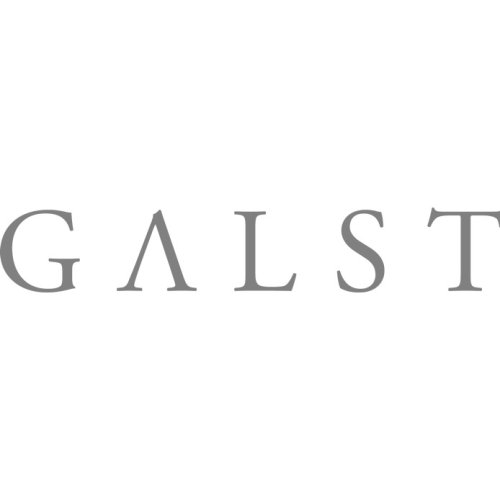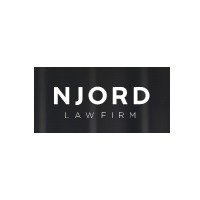Best Energy, Environment & ESG Lawyers in Copenhagen
Share your needs with us, get contacted by law firms.
Free. Takes 2 min.
List of the best lawyers in Copenhagen, Denmark
About Energy, Environment & ESG Law in Copenhagen, Denmark
Energy, Environment & ESG law in Copenhagen covers the legal frameworks and regulations that govern the energy sector, environmental protection, and Environmental, Social, and Governance (ESG) matters. Copenhagen, as Denmark's capital, leads national and municipal initiatives to promote sustainability, renewable energy, and responsible business practices. Danish law aligns with stringent European Union standards, making Copenhagen a hub for progressive environmental policies, green technologies, and responsible corporate governance. Legal professionals in this field help companies and individuals comply with regulations, facilitate sustainable business operations, and navigate complexities inherent to environmental objectives and ESG requirements.
Why You May Need a Lawyer
People and organizations in Copenhagen may require legal support in Energy, Environment & ESG for several reasons. If you plan to develop or operate energy projects, such as wind or solar farms, you’ll need guidance on permits and compliance. Businesses facing environmental compliance issues or investigations from authorities must navigate complex regulations. Companies seeking to improve their ESG reporting or needing to comply with new transparency and sustainability standards often consult legal experts. Individuals or groups challenging environmental violations, or those advocating for responsible corporate conduct, can also benefit from specialized legal advice. Lawyers can assist with contracts, disputes, regulatory filings, mergers, acquisitions, and strategic policymaking in these areas.
Local Laws Overview
Copenhagen observes both Danish and EU law regarding Energy, Environment & ESG matters. Denmark’s Energy Agreement sets ambitious targets for renewable energy, including wind, solar, and bioenergy use. The Danish Environmental Protection Act outlines requirements for pollution prevention, waste management, and environmental assessments. ESG regulations are shaped both by national initiatives and EU directives, such as the Corporate Sustainability Reporting Directive (CSRD). Local authorities in Copenhagen may impose additional standards for sustainability in urban planning, construction, and city operations. Compliance involves permits for energy projects, environmental impact assessments, waste and water management regulations, and strict reporting duties for ESG risks and corporate social responsibility.
Frequently Asked Questions
What does ESG mean in a Danish legal context?
ESG stands for Environmental, Social, and Governance. It refers to standards measuring a company’s impact on environmental policy, its treatment of employees and communities, and its ethical governance. In Denmark, businesses are increasingly required to disclose ESG information, influenced both by local laws and EU regulations.
Are there special requirements for renewable energy projects in Copenhagen?
Yes, renewable energy projects must comply with zoning, environmental impact assessments, and obtain specific licenses from local and national authorities. Copenhagen often encourages such projects but mandates adherence to environmental standards and public consultation processes.
How does Denmark regulate environmental protection?
Environmental protection in Denmark is governed by the Environmental Protection Act, which includes regulations on pollution, waste, water, and biodiversity. The law is supplemented by sector-specific rules and EU directives, especially for areas within Copenhagen.
Do Copenhagen companies have to follow EU ESG regulations?
Yes, Copenhagen-based companies, especially larger ones and those listed on stock exchanges, must comply with EU ESG regulations, such as the Non-Financial Reporting Directive and Corporate Sustainability Reporting Directive. These rules set standards for transparency in environmental and social impact reporting.
What permits are needed for energy infrastructure projects?
Energy infrastructure projects typically require local municipality approval, environmental impact assessments, permits from the Danish Energy Agency, and adherence to health and safety regulations. Each project may have unique requirements depending on its size and location.
Can citizens challenge environmental decisions made by authorities?
Yes, Danish law allows citizens, affected parties, and NGOs to challenge administrative decisions related to environmental issues. Complaints can be submitted to environmental boards or, in some cases, through the courts.
What are the penalties for non-compliance with ESG standards?
Penalties for non-compliance vary but can include fines, sanctions, suspension of business activities, or reputational damage. Authorities may require corrective actions or, in severe cases, revoke permits or licenses.
Are there incentives for sustainable business practices?
Yes, both national and local authorities in Denmark offer incentives for sustainable projects, such as grants, tax benefits, and preferential treatment in public procurement for businesses meeting high environmental standards.
How can a lawyer help with ESG reporting?
A lawyer ensures ESG reports meet legal requirements, are accurately disclosed, and comply with both Danish and EU standards. They can assist with setting up procedures for ongoing compliance and help respond to regulatory scrutiny.
Is environmental due diligence required when buying property or businesses?
Yes, environmental due diligence is strongly recommended during mergers, acquisitions, or real estate transactions to identify potential liabilities, ensure regulatory compliance, and avoid future legal or financial risks.
Additional Resources
- The Danish Energy Agency (Energistyrelsen): Provides guidelines, permits, and data related to energy projects - The Danish Environmental Protection Agency (Miljøstyrelsen): Oversees environmental protection, approvals, and enforcement - Copenhagen Municipality (Københavns Kommune): Local policies and procedures for sustainability and environmental permits - The Danish Business Authority (Erhvervsstyrelsen): Responsible for corporate governance and ESG disclosure requirements - The Environmental Board of Appeal (Miljø- og Fødevareklagenævnet): Handles complaints about environmental decisions - Local and international environmental NGOs active in Copenhagen, such as the Danish Society for Nature Conservation
Next Steps
If you need legal advice or representation in Energy, Environment & ESG issues in Copenhagen, it is important to collect all relevant documentation about your situation, such as permits, contracts, and correspondence with authorities. Identify your primary concerns and objectives. Next, contact a lawyer or legal firm with experience in the specific area you need assistance with. Many offer initial consultations to clarify how they can help and outline possible solutions. Consider consulting governmental agencies for additional information or to clarify procedural steps. Acting early ensures compliance with regulations, reduces risk, and helps you make informed decisions in this complex and evolving legal landscape.
Lawzana helps you find the best lawyers and law firms in Copenhagen through a curated and pre-screened list of qualified legal professionals. Our platform offers rankings and detailed profiles of attorneys and law firms, allowing you to compare based on practice areas, including Energy, Environment & ESG, experience, and client feedback.
Each profile includes a description of the firm's areas of practice, client reviews, team members and partners, year of establishment, spoken languages, office locations, contact information, social media presence, and any published articles or resources. Most firms on our platform speak English and are experienced in both local and international legal matters.
Get a quote from top-rated law firms in Copenhagen, Denmark — quickly, securely, and without unnecessary hassle.
Disclaimer:
The information provided on this page is for general informational purposes only and does not constitute legal advice. While we strive to ensure the accuracy and relevance of the content, legal information may change over time, and interpretations of the law can vary. You should always consult with a qualified legal professional for advice specific to your situation.
We disclaim all liability for actions taken or not taken based on the content of this page. If you believe any information is incorrect or outdated, please contact us, and we will review and update it where appropriate.
Browse energy, environment & esg law firms by service in Copenhagen, Denmark
Copenhagen, Denmark Attorneys in related practice areas.

















